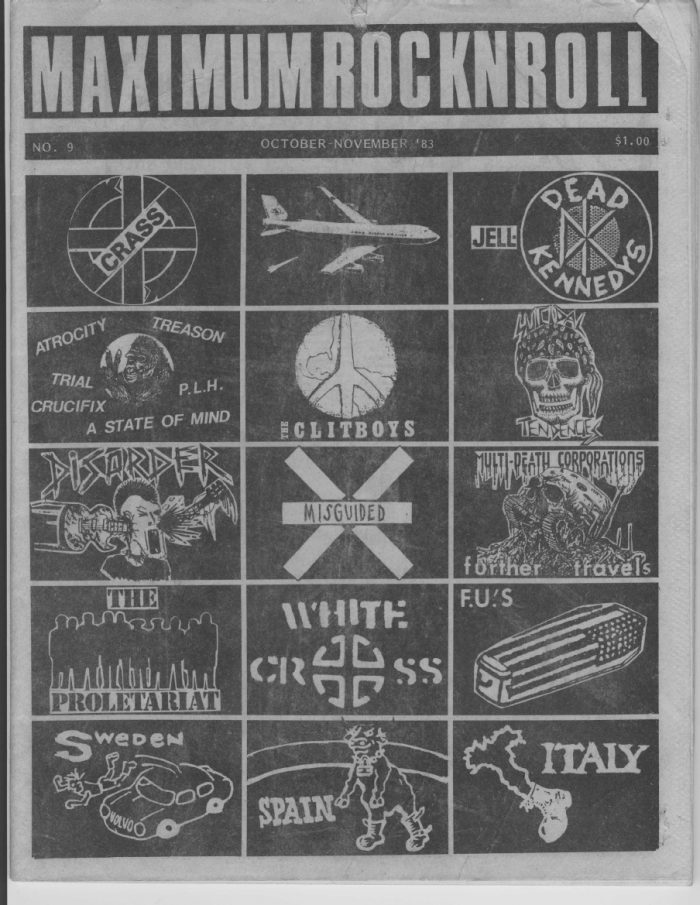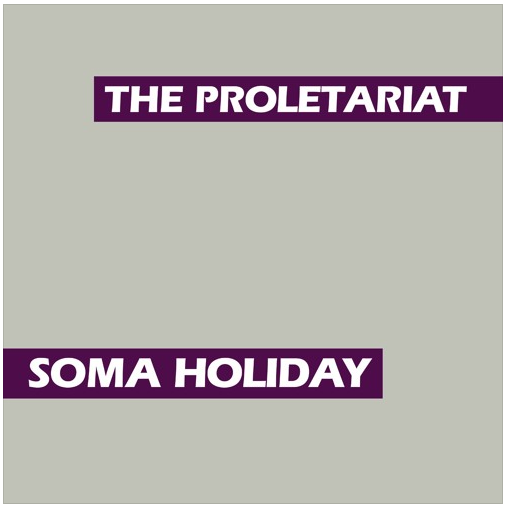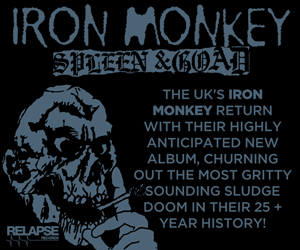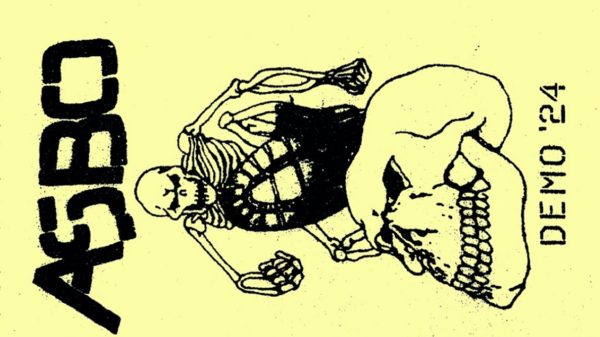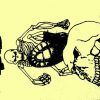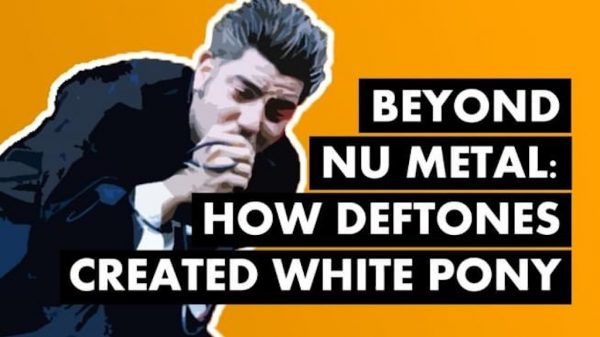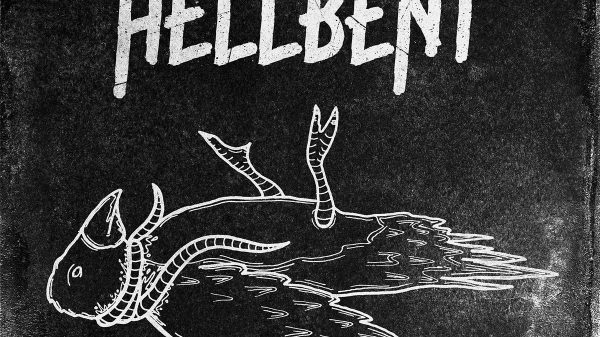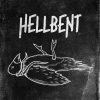After thirty years, Boston area punk band The Proletariat has returned to play several dates celebrating the recent reissue of their landmark 1983 Soma Holiday LP on Ss Records. Although the album was released at the height of the original US hardcore movement, it did not hew to the conventions of the genre. At the time, Soma Holiday was an odd duck in the pack – a nervous, slightly arty curveball thrown into a sea of thrash.
While many of the Proletariat’s early 80s contemporaries were engaged in an unofficial arms race to become the loudest and fastest band in the world — with many bands devolving into a caricature of hardcore, belting out one interchangeable one-dimensional thrash number after the next — The Proletariat chose to take hardcore punk in a slightly different direction. At the time, reviewers remarked upon the similarities between Soma Holiday and some of Gang of Four’s early agit-prop stuff or the minimalist experimentalism of Wire. But the overriding harsh force of the album was rooted in US hardcore.

There was an angry abrasiveness in singer Richard Brown’s vocal delivery, and while Frank Michaels’ guitar work did seem inspired as much by the skritchiness of UK postpunk as by the power chord chug of Minor Threat, the band could also knock out propulsive tracks that were up there with the most galvanic stuff of the era (like the devastating “Condition,” which resembles Gauze’s later [1984] song “Power”). In retrospect, Soma Holiday prefigured a lot of late 1980s and 1990s post-hardcore – Fugazi, Ignition, Native Nod, Circus Lupus, 1.6 Band, etc. and maybe the last material by The Faith. And there were contemporaries of The Proletariat that nowadays seem to be sonic cousins of theirs — off-kilter punk bands like The Ex, Husker Du, the Minutemen, or hardcore pioneers Middle Class on their slowed-down 1982 Homeland LP. But make no mistake, Soma Holiday is a US hardcore album with postpunk influences, not vice versa. (The Proletariat’s subsequent, 1985 Indifference LP is actually the Proletariat album to go to if you want to hear the band at their postpunk best.)
The Proletariat began by rehearsing Sex Pistols covers, and Brown’s vocals do indeed sometimes resonate with the higher-pitched wailing of John Lydon in PiL, or the ferocity of Kirk Brandon of The Pack and Theatre of Hate. Drummer Tom McKnight did not stick to a single script; although double-time hardcore songs are on tap on Soma Holiday (“Splendid Wars”), McKnight would couple that with marching, martial snare work, as on “Another Banner Raised” or “Scars,” or slower, funereal dirge trudge, as on “Embraced.” Peter Bevilacqua’s bass will often start off a song but will guide the band into a stop-start, angular, and unexpected direction.
After their “Distortion” demo, the band appeared on the seminal This is Boston, not L.A. compilation in 1982 with their most conventionally thrashy material, including crowd favorite “Options.” By the time Soma Holiday was released on the band’s own Non-U label in 1983, varied tempos and drum patterns were on show and Frank Michaels was showcasing his increasingly complicated guitar work. Brown’s lyrics pointed to a desolate working class landscape of dead end jobs, unrealized human potential put in the service of a system geared to benefit corporations, and a master class that regarded its citizens as little more than human cannon fodder to be used in wars abroad or to be exploited at home. The album name, “Soma Holiday,” comes from Aldous Huxley’s Brave New World and refers to a narcotized, opium-like “vacation” away from the troubles of the world (“..there is always soma, delicious soma, half a gramme for a half-holiday, a gramme for a week-end, two grammes for a trip to the gorgeous East, three for a dark eternity on the moon…”).
Below I got to speak with singer Richard Brown about the reissue of Soma Holiday, who he wants to win the US presidential election, and other topics.

Richard Brown of The Proletariat was interviewed by Oliver in September 2016.
So “Soma Holiday” has recently been reissued. What is different on this reissue that wasn’t on the original release? What are some of the technical details of the new release: Who produced or remastered it, what label is it on, is it vinyl only, are there bonus tracks, etc. – that sort of stuff.
Richard Brown: The new reissue of “Soma” is basically the same as the original. We had thought about adding bonus tracks, but opted not to because to add more time to the repressing could have a negative effect on the sound quality. The reissue is on Scott Soriano’s The reissue is on Scott Soriano’s Ss Records. It’s a vinyl-only reissue and was remastered/cut at RTI/California by John Golden.

You all got recognition in Steven Blush’s American Hardcore book, where he wrote: “The Proletariat played vicious hardcore fused with a jagged Gang of Four/Killing Joke edge. Frontman Richard Brown wrote poetically oblique lyrics with a distinct Marxist bent – part Burroughs, part Mao. Soma Holiday, their ’83 LP, was way ahead of its time.” Do you think this is accurate? What would you add or correct about Blush’s statement?
Richard Brown: I would say that that was a fairly accurate description of the band. There was a heavy Gang of Four influence and some of Killing Joke’s heavy percussion perhaps. I always thought Frank (Michaels’) guitar playing was very “jagged” sounding. I can easily understand the remark about a Marxist “bent” and I take any comparison to Burroughs as a compliment.
Soma Holiday has always had a few uptempo, traditionally hardcore numbers, but also a few mid-tempo or quirky tempo’d songs. What response did you get from live audiences at the time this release came out – 1983 – when you played this stuff?
Richard Brown: By the time we released Soma in 1983 our core audience had already embraced our quirkiness, for lack of a better word. We were never your typical hardcore band; we used cowbells and toy pianos. When we would play to crowds that had a more hardcore element, they usually used the off-beat/quirky/slow songs as a chance to a) rest, b) go to the bathroom or c) yell “hurry up – play ‘Options!'”

How would you classify the Proletariat in terms of the hardcore movement? How would you describe your sound to no one that had ever heard of you all?
Richard Brown: Hmmmm … good question. I would say that we were either a hardcore band with noise/art influences or a noise band with hardcore influences. Basically we were a political punk band and I would describe us as noisy, loud, heavy and fast.

You all had very political lyrics, but you focused on a lot of economic issues that many hardcore/punk bands don’t normally focus on; usually, if they are political, punk bands are focused on cultural issues or identity politics as opposed to hard economics. Have any of your views changed since the 80s heyday of The Proletariat, and how do you feel the old lyrics of the Proletariat hold up today in 2016?
Richard Brown: So many of the differences between people can be boiled down to dollars and cents, and that hasn’t changed at all. As for whether any of my views have changed, I would say that with age I have become somewhat pragmatic, but in a negative way. I realize that Democrats, like their Republican counterparts, are just as capable of sending our country’s young into harm’s way, of making trade agreements that hurt American workers, and of putting corporations ahead of people. It is the rich vs. you and the rich vs me. It comes back again to economics, or economic inequality in this case.
I think our lyrics are just as relevant today as they were in 1983. What was happening in this country in the early 80’s was the opening salvo of the class warfare that we have been engaged in for nearly 40 years now. Supply Side Economics (“Voodoo Economics”) worked just as it was designed to — it lowered taxes for corporations and the rich, eliminated regulations and restrictions on corporations that protected consumers and the environment . The result of all this was it has put more money in the pockets of our nation’s captains of industry.
In the mid-1980s many bands, like The Blitz, Middle Class, yourselves, and others “softened” or refined their sound and became more experimental. Another segment of the US hardcore scene went towards metal at that time (Danzig, TSOL, SSD, etc). What do you think accounted for how that initial scene’s musical direction split apart?
Richard Brown: On our part I think the “softening” of our sound by the time of Indifference was a logical progression. We developed nuance, if you will. We realized you didn’t need a hammer to kill an ant. We were always about reaching out to people/fans and we really did want to change things, and felt we needed to bring others along with us to do so.
I hated when a lot of the hardcore bands went into the whole metal thing. For one thing it was underground bands trying to play popular music — metal. And, secondly, they were not as good at it as the “real” metal bands. Too many of them really didn’t have the chops. I never liked anything remotely Misfits/Danzig-esque, so that wasn’t a big loss, but I like SSD a lot and hated that they went out like that. Ultimately I think all the bands involved wound up playing music that they truly felt. The bands that went metal always loved metal before, during, and after hardcore, and the bands that went a different direction were most comfortable playing the musical style(s) they morphed into.
I’m a huge fan of Killing Joke. Were you guys actually listening to stuff like that back in the day, the British postpunk stuff, like Blush mentioned in American Hardcore? It seemed like hardcore orthodoxy in the 1980s was “faster and louder” and you couldn’t brook any compromise with anything arty or postpunk or slowed down. (Some punks still feel this way today…) Who were your influences in the period preceding Soma Holiday and do you feel that shows in the songwriting?
Richard Brown: I personally loved Killing Joke and was definitely a fan of the Brit postpunk stuff. I am pretty sure that we weren’t the only HC band that listened to the Killing Jokes of the world at the time.
Shortly after we released Soma Holiday, the whole hardcore-morphing-into-metal thing started to gain momentum — and that was probably to our benefit. It helped separate us from the herd. Our influences were pretty broad: everything from Mission of Burma to Minor Threat to Gun Club, all in addition to the stuff we were weaned on: Clash/Pistols/Ramones. I definitely feel that The Clash and Gang of Four and even Bob Dylan were heavy influences on us lyrically.
Who was the primary songwriter on Soma Holiday? Who wrote the lyrics, and what was the songwriting process like?
Richard Brown: Most of the songs were pieced together. I wrote the majority of the lyrics and Frank wrote the majority of the music. Typical song genesis would be Frank or Peter would play a part they had come up with and I would try to plug in lyrics that I had in my notebook. It usually went both quickly and easily.
I think you’ve seen another article I wrote where I said that I think your following LP, “Indifference,” is a really great record, too, comparable to Middle Class’s surprisingly postpunk “Homeland” full length. Will “Indifference” be reissued or remastered at any point in the future as well?
Richard Brown: Yes, I did read your very kind words about Indifference, thank you. There are days when I think Indifference is better than Soma, and vice-versa. I guess that’s normal. In fact I had not listened to Middle Class’s “Homeland” until I read your article and I really effing love the album. I don’t know of any plans to reissue Indifference at this point. I would guess if the Soma reissue does OK then there would be a good chance that Indifference could get reissued as well.

As far as political or philosophical ideologies, which ones had the most influence on The Proletariat? The band name itself conjures up Marxist philosophy. How did that feed into your material?
Richard Brown: While we definitely had heavy left-leaning views, our motto was “the many before the few.” Empathy over sympathy. It was one thing to feel sorry or bad about something, but that was never enough for us — we wanted to help. The Marxist leanings had more to do with being unsatisfied with the status quo, for example capitalism, rather than embracing or supporting any of the Communist regimes that were in power at the time like the USSR or China.
Who do you plan to vote for this year in the US presidential election and why?
Richard Brown: I have voted in every Presidential election since I was 18 and I will vote in this one as well. I am completely underwhelmed with this cycle’s candidates, and truly wish that Bernie Sanders had gotten the Democratic nomination. That being said, I will vote for the only adult running for the office of president, HRC. I am not thrilled about it, but the alternative is frightening.
Are there any recent or newer bands, punk or otherwise, that you like and listen to? Who are they?
Richard Brown: For the most part I have not been super-attentive when it comes to new bands over the past few years. Most of the “newish” bands I listen to are bands that people/friends have told me of. Most aren’t truly new: I like Sleaford Mods, I like Future of the Left, and I love Arctic Flowers.”
Will The Proletariat be touring any time soon on the strength of this reissue? What is the news with that?
Richard Brown: The Proletariat are planning to do four shows this fall New Haven, Boston, Providence and NYC and hopefully some more shows in early 2017 in different cities.
Thank you for your time, Richard!
===============================================
The Proletariat have a Facebook page here and an official website here.
From the Ss Records website: “Soma Holiday’s official release date is Oct 21, 2016, but it will be shipped (hopefully) earlier than that.”


